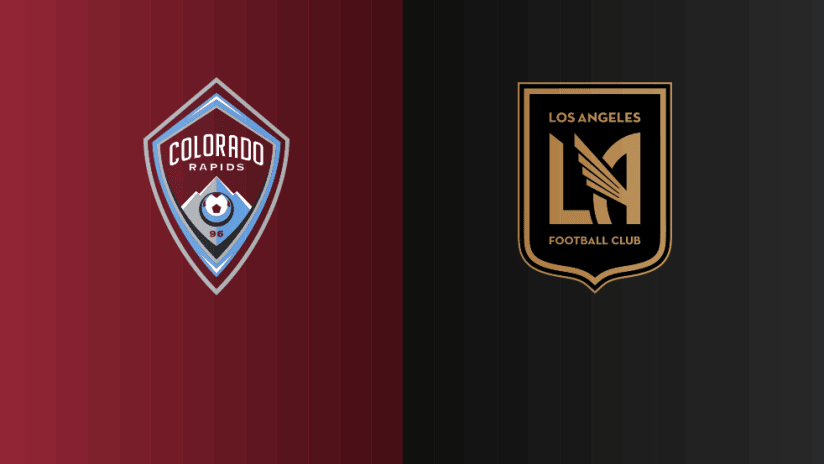Wednesday was a big day in Major League Soccer, with the news an MLS Players Association vote had approved the terms of an adjusted collective bargaining agreement, another step towards a return to play as the coronavirus crisis slowly ebbs.
But that wasn’t what MLS Commissioner Don Garber opened with as he addressed members of the media in a midday conference call to discuss all that.
“We're all managing through the impact of a global pandemic, and then managing through the impact of a national cry for addressing the longstanding and deep injustice and inequality that's been affecting the Black community for a lifetime,” Garber said. “So I wanted to begin today, as I issued in a statement earlier this week, that we, as a league, are just horrified by the appalling and senseless and unspeakable tragedy in the death of George Floyd.”
Over the past week or so that name has come to ring out around the world, as Floyd's grisly death under the knee of Minneapolis police officer Derek Chauvin sparked massive protests in countless cities and pushed the long-simmering issue of police brutality back into the national and international consciousness.
Players, coaches, staff and supporters across MLS have joined in, many speaking out on their social-media channels or hitting the streets to take part in the marches and memorials. And Garber expressed his desire to foster constructive conversations and “meaningful change” on both personal and organizational levels.
“It’s really a painful reminder with the things going on the last eight days how far we, as a country, need to go to address some of these deep, deep, systemic issues,” he said.
“We have always stood against racism. We’ve stood for equality [since] the beginning of our league's history. And it's not just the league, it's our clubs, it's our players. We've tried to create programs that would address some of the things that are important to our core values. And I have to say that it's not enough to produce ads, it's not enough just to have programs that talk about these issues. We, as a league, and I think I can also speak as a leader in the sport, and I can speak on behalf of our players and our clubs, that we need to go further. And we're committed to doing that.”
Other large entities have similarly recognized and embraced the need to take the extra step this time, even if doing so may antagonize those with more regressive views or a “stick to sports” mentality.
The impulse to do more also arises from growing fatigue around the all-too-common modern phenomenon in which corporations and other organizations set out to post statements of support that wind up being so vague and mealy-mouthed they alienate the very people they’re seeking to connect with.
And today's audience is also wise to those attempting to use these moments as marketing opportunities, a branding exercise instead of an appeal to universal humanity. The Guardian’s Jonathan Liew adeptly skewered this trend in a column this week, writing about “anti-racism as PR exercise, as corporate strategy, as trending topic and hashtag and content nodule.”
So it’s not a simple task, but it’s a necessary one. And while it shouldn’t really matter whether there’s majority support for collectively addressing these old problems (and the even older hatred that underpins them) in new and more committed ways, that support is there.
The public polling we have so far shows unprecedentedly large swathes of the American public are waking up to the harsh realities that the Black community faces in this country. How disproportionately they suffer violence and confinement at the hands of the criminal justice system. What a deeply toxic legacy this state of affairs has imposed in their communities. (Canada is part of this conversation, too, albeit in its own unique ways given its distinct history.)
If you don’t believe me, go listen to the words of Jozy Altidore, Kei Kamara, CJ Sapong, Weston McKennie and any number of other players who’ve shared their experiences and added their voices to the international chorus of anger and lament in recent days. There’s no longer just a righteousness to this cause, there’s a real urgency, and as the largest purveyor of the world’s game in two of the largest democracies on earth, MLS is uniquely poised to facilitate progress.
Garber revealed on Wednesday he recently sent a league-wide personal letter “about what we stand for, what it is that we need to do, how we need to come together and lead, and what I think we need to do to start that process,” and he has been seeking out the perspectives of those around the league who have experienced this issue most profoundly.
With MLS poised to make a play for at least a share of the global sporting spotlight with its return to play, it’s hard to imagine a better time to make an unprecedented commitment to joining the movement for true equality.
“Most of the time, it's easy for people to post on social media. It's easy to show support by pledging solidarity,” Garber said. “It is much harder to marshal the power of a platform to actually effectuate change. And that's why we need to start digging deep and understanding.
“We've got 800-plus players and we've got 26, soon to be 30 teams, in the United States and Canada, all that have lots of fans and impact. And we've got to figure out how to marshal all of that.”










